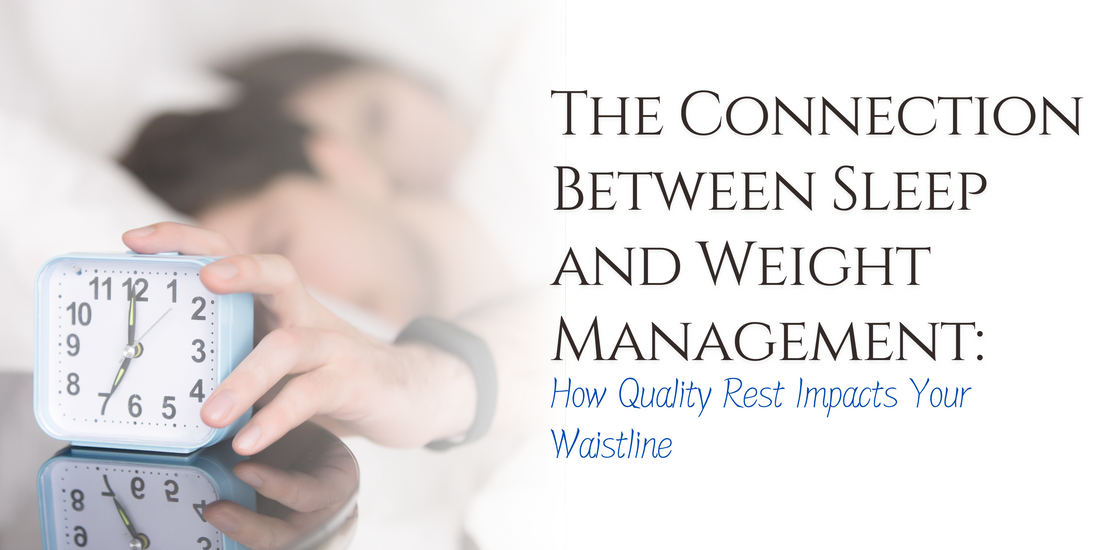
The Connection Between Sleep and Weight Management: How Quality Rest Impacts Your Waistline
Million's SmileShare
Introduction
Sleep is often overlooked in the quest for effective weight management, yet it plays a vital role in maintaining a healthy weight and overall well-being. Quality rest is essential for various bodily functions, including metabolism, appetite regulation, and stress management. In this blog, we’ll explore how sleep influences weight management and provide tips for improving sleep quality to support your health goals.
1. How Sleep Affects Metabolism
Impact on Metabolic Rate
Sleep is closely linked to metabolic rate, which is the rate at which your body burns calories. Insufficient sleep can slow down your metabolism, making it harder for your body to process and utilize energy efficiently.
-
Reality Check: Studies have shown that sleep deprivation can lead to a decrease in resting metabolic rate, which means your body burns fewer calories at rest. This can contribute to weight gain over time.
-
Tip: Aim for 7-9 hours of quality sleep per night to support a healthy metabolism and ensure your body functions optimally.
2. The Role of Sleep in Appetite Regulation
Influence on Hunger Hormones
Sleep affects the balance of hormones that regulate hunger and appetite. Two key hormones involved are ghrelin and leptin.
-
Ghrelin: This hormone stimulates appetite and increases cravings for high-calorie foods. Lack of sleep can lead to higher levels of ghrelin.
-
Leptin: This hormone signals satiety and helps you feel full. Sleep deprivation can reduce leptin levels, making you feel less full and more likely to overeat.
-
Tip: Prioritize getting enough sleep to help maintain a healthy balance of these hormones and support appetite regulation.
3. Sleep and Stress Management
Impact of Sleep on Stress Levels
Quality sleep helps regulate stress levels, which in turn affects weight management. Chronic stress can lead to increased production of cortisol, a hormone that can drive cravings for unhealthy foods and promote fat storage, particularly around the abdominal area.
-
Reality Check: Poor sleep can exacerbate stress and elevate cortisol levels, leading to weight gain and difficulty losing weight.
-
Tip: Incorporate stress-reducing practices such as meditation, deep breathing exercises, and regular physical activity to complement your efforts in achieving better sleep.
4. The Connection Between Sleep and Physical Activity
Effect on Exercise Performance
Adequate sleep is crucial for optimal physical performance and recovery. Lack of sleep can affect your energy levels, motivation, and ability to perform well during workouts.
-
Reality Check: Poor sleep can lead to decreased physical activity and lower exercise intensity, which can hinder weight loss and fitness progress.
-
Tip: Ensure you get sufficient rest to support your exercise routine and overall physical health. Aim for restorative sleep to enhance your performance and recovery.
5. Strategies for Improving Sleep Quality
Create a Restful Sleep Environment
Your sleep environment plays a significant role in determining sleep quality. Make your bedroom conducive to rest by addressing the following factors:
-
Comfort: Invest in a comfortable mattress and pillows that support restful sleep.
-
Darkness: Use blackout curtains or an eye mask to block out light.
-
Quiet: Consider using earplugs or a white noise machine to minimize disruptive sounds.
-
Tip: Establish a consistent sleep schedule by going to bed and waking up at the same time each day, even on weekends.
Practice Relaxation Techniques
Incorporating relaxation techniques into your bedtime routine can help signal to your body that it’s time to wind down and prepare for sleep.
-
Techniques: Try reading, taking a warm bath, practicing gentle yoga, or listening to calming music before bed.
-
Tip: Avoid stimulating activities and screens (phones, tablets, TVs) at least an hour before bedtime, as they can interfere with your body’s natural sleep-wake cycle.
Monitor Sleep Patterns
Tracking your sleep patterns can help you identify issues and make necessary adjustments to improve sleep quality.
-
Tools: Use a sleep tracker or journal to monitor your sleep duration and quality, and note any factors that might be affecting your rest.
-
Tip: Make gradual changes to your sleep routine based on your observations, and consult with a healthcare provider if you experience persistent sleep difficulties.
6. When to Seek Professional Help
Addressing Sleep Disorders
If you consistently struggle with sleep despite making lifestyle changes, it may be helpful to seek professional assistance. Sleep disorders such as insomnia, sleep apnea, or restless leg syndrome can impact your ability to get restful sleep and affect weight management.
-
Reality Check: Consult with a sleep specialist or healthcare provider to diagnose and address any underlying sleep issues that may be affecting your weight and overall health.
-
Tip: Prioritize addressing sleep disorders to improve your quality of life and support your weight management efforts.
Conclusion
Quality sleep is a critical component of effective weight management. By understanding how sleep affects metabolism, appetite regulation, stress, and physical activity, you can make informed choices to enhance your sleep quality and support your health goals. Prioritizing restful sleep not only benefits your weight management efforts but also contributes to overall well-being and vitality.
